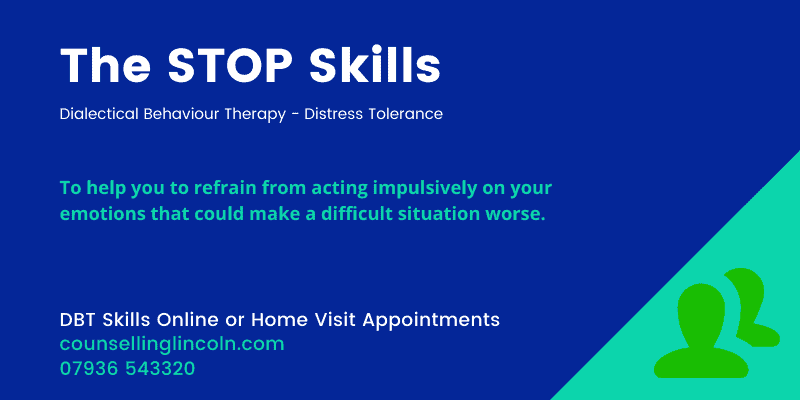Using the STOP Skills from Dialectical Behaviour Therapy
These are usually the first skills learnt in the distress tolerance module. It’s very easy to remember and learn but like all DBT skills it takes practice, practice, practice, before it becomes effective.
When you first start, practice it at any time you can. When you notice those emotions rising, whatever they are, try STOPping. If you wait for a crisis or for those times when emotions feel overwhelming you won’t ever get the chance to practice the skill.

S is for STOP! (No surprises there then!)
Just freeze – don’t move an inch.
When you first start to practice it will feel like an eternity, but when you get good at it you will be so quick that nobody will notice.

T is for – Take a Step Back
If you are standing, a small step is enough, you don’t have to leap out of the way. Take a breath. Take the time to feel calmer.
If you are sitting, just change your position slightly or move your head.

O equals – Observe
Notice what is going on around you. Notice any judgements you might have. The more information you have the easier it is to make decisions.
Notice the sensations that you feel.

P is for Proceed (Mindfully)
Think through the situation. What are your goals?
Think about the pro’s and con’s of acting in this situation. Try problem solving. Make “Wise Mind” decisions.
Remember the STOP skill is a distress tolerance skill and designed to work at times when emotions are overwhelming. After you have used it you may need to use other skills to manage the situation or your emotions.
